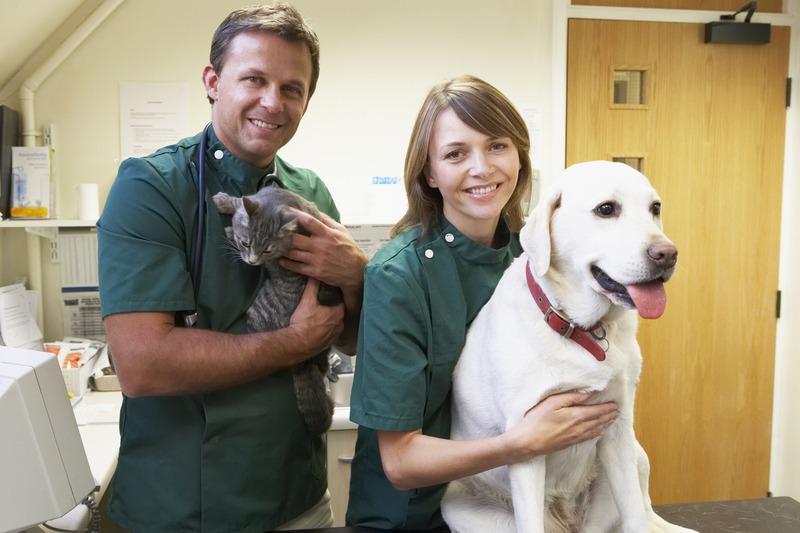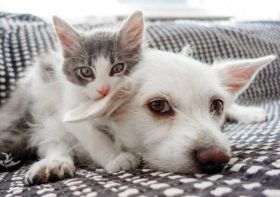Which Pet Conditions Require a Pre-Surgery CT Scan?

When our furry friends fall ill, it’s not always easy to figure out what’s wrong with just a quick examination. That’s where advanced diagnostic tools, like CT scans, come into play. For some of our beloved pets, getting a pre-surgery CT scan is a critical step towards a successful outcome. But when exactly is such a scan necessary? Is it always required, or only for specific conditions? Let’s walk through some of the ailments and situations that might lead a vet to recommend this high-tech imaging before surgery.
Pet Conditions That May Necessitate a CT Scan Before Surgery
Now, let’s get straight to the point and discuss the various medical conditions in pets that may require a CT scan before proceeding with surgery:
1. Orthopedic Issues
Just like in humans, pets can suffer from a range of bone and joint issues. A CT scan can provide intricate details needed to plan surgical correction for conditions like:
-
Complex fractures
-
Joint abnormalities
-
Spinal cord injuries
-
Chronic osteoarthritis requiring surgical intervention
These detailed images allow veterinarians and soft tissue veterinary surgeons to plan the best approach for repair, ensuring minimal invasiveness and quicker recovery times.
2. Cancer and Tumors
Cancer is a particularly concerning word for any pet owner. When tumors are detected, it’s paramount to understand their size, depth, and whether they have spread to other areas. Here are the cancer-related situations where CT scans prove invaluable:
-
Mapping complex tumors in preparation for removal
-
Assessing the extent of cancer spread (metastasis) before planning a surgical course of action
-
Understanding the relation between the tumor and surrounding tissues for precision in surgical removal
3. Neurological Disorders
When our pets face neurological problems, it’s urgent to diagnose the issue accurately. Conditions that may require a CT scan include:
-
Seizures of unknown cause
-
Brain swelling or inflammation
-
Suspected brain tumors
In these cases, CT technology aids in revealing the presence and extent of neurological abnormalities.
4. Respiratory System Evaluations
Respiratory troubles in pets can be life-threatening and often require precise diagnostics. A CT scan may be used to assess:
-
Nasal cavity diseases
-
Lung tumors or lesions
-
Tracheal disorders
These images help vets better understand the problem, allowing for surgical planning that is more likely to lead to successful outcomes.
5. Digestive System Concerns
Digestive issues can range from uncomfortable to severe for your pets. A CT scan provides invaluable insight when dealing with:
-
Abnormal masses in the abdomen
-
Foreign body location before surgical removal
-
Complex hernias
This can be especially important when time is of essential and precision is needed to resolve a pet’s issue as quickly as possible.
6. Ear, Nose, and Throat Complications
Often, issues in the intricate structures of the ear, nose, and throat are not obvious upon visual examination or with traditional imaging. CT scans offer detailed views of these areas to find:
-
Chronic ear infections that may require surgical intervention
-
Masses or polyps in the nasal passages
-
Throat blockages or abnormalities
Planning for Complex Surgeries
Sometimes, a pet may not be suffering from a specific disease listed above but is facing a complex surgery due to an injury or congenital condition. In these cases, a pre-surgery CT scan offers veterinarians a roadmap of sorts, providing crystal-clear images to plan the procedure step by step. This can minimize surgery time, reduce complications, and ensure the best possible outcome for our animal companions.
One must understand that a pet CT scan in Tigard, OR, is an advanced diagnostic procedure. While it may not be necessary for every surgery, it can be a game-changer in challenging scenarios where traditional imaging methods fall short.
Added Value of CT Scans
Why go for a CT scan when X-rays and ultrasounds are also available? Well, CT scans offer a few distinct advantages:
-
They provide detailed cross-sectional images that reveal structures in ways not possible with other imaging forms
-
CT images can be manipulated to create a 3D model of the area, giving a full view of the surgical site
-
They are fast and can often be done with the pet under mild sedation rather than full anesthesia, reducing the risk
Post-scan Considerations
After the CT scan, your vet will discuss the findings with you. It’s vital to understand what comes next, whether that’s the go-ahead for the planned surgery, a shift in approach, or the prescription of a different treatment path altogether. This is also where a coordinated approach involving a veterinary pharmacy and lab can help ensure that your pet receives the right pre-and post-operative care necessary for recovery.
A good veterinary pharmacy and lab work in sync with your veterinarian to provide the medications, supplements, or other treatments your pet needs for optimal health, especially following an intensive procedure like surgery informed by a CT scan.
Finding the Right Veterinary Diagnostic Center
When your vet suggests a CT scan, finding a facility with the right expertise and equipment is critical. Here are some elements to look for:
-
Board-certified radiologists and surgeons on staff
-
State-of-the-art CT scanning equipment
-
Possibility of sedation or anesthesia administered by qualified professionals
-
Good communication with your primary care veterinarian
-
Comprehensive care that includes post-scan analysis and treatment options
Final Thoughts
Pre-surgery CT scans are not a one-size-fits-all solution, but they play a vital role in the meticulous planning and execution of various veterinary surgeries. From orthopedic repairs to tumor removals, these scans offer a depth of detail that can transform a pet’s prospects for recovery and a return to health. Not every condition or surgery requires such detailed diagnostics, but when a CT scan is warranted, it’s an invaluable asset to ensuring the best care for our animal family members.


